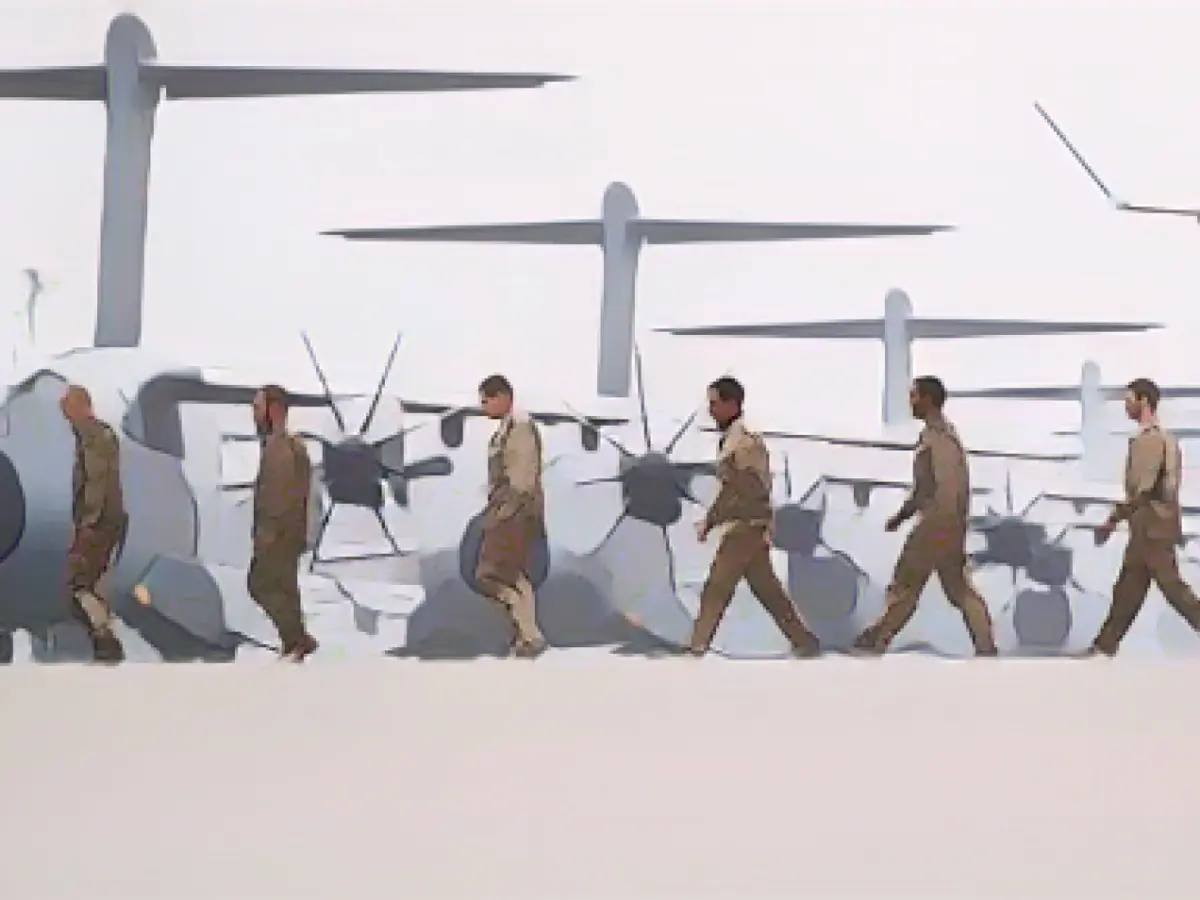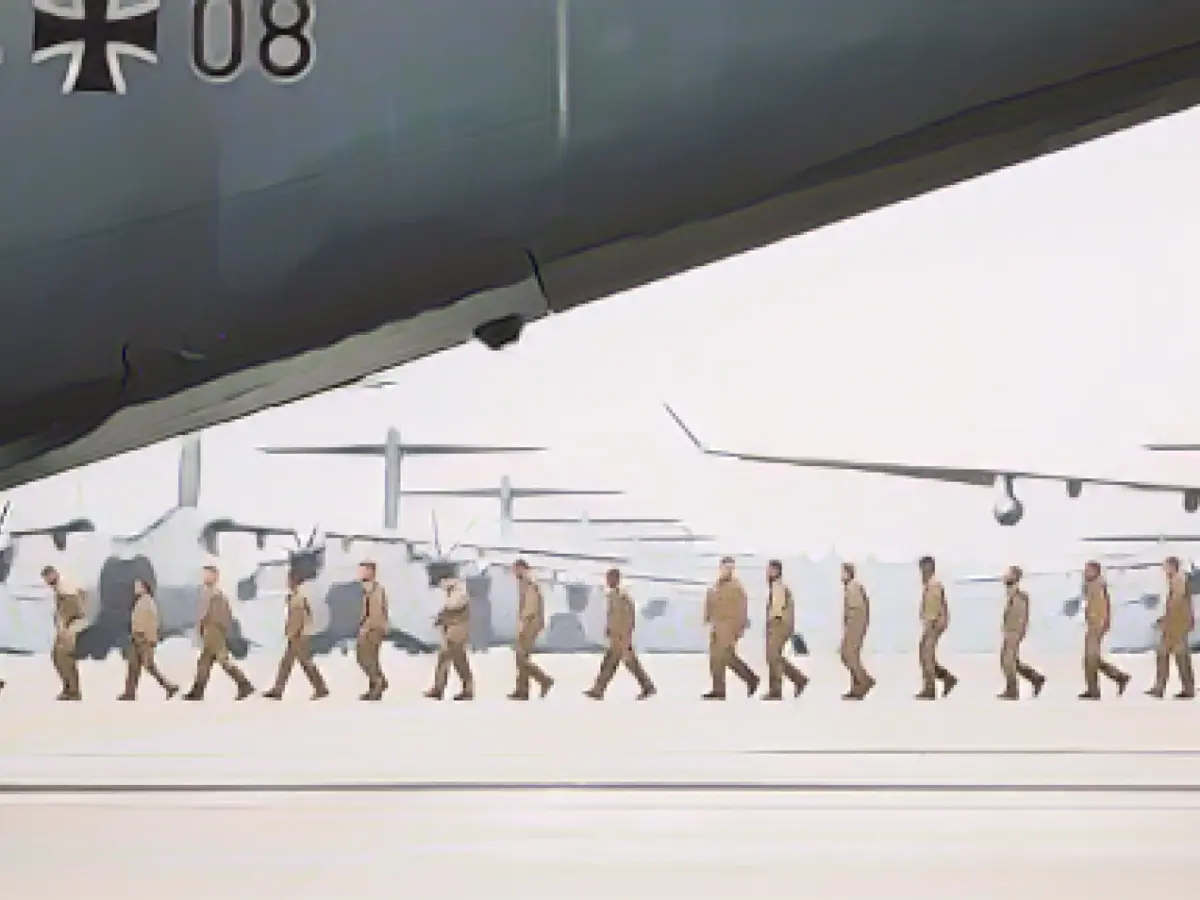Last Soldiers Back in Germany After Tense Mali Deployment
After a challenging stint in Mali, West Africa, the final Bundeswehr soldiers have returned to Germany. They touched down at Wunstorf near Hanover following a trip from Dakar, Senegal, aboard two A400M military transporters and an A330MRTT. Defense Minister Boris Pistorius (SPD) was present to welcome them, along with their families, to salute their accomplishments.
In spring 2013, the UN launched the peacekeeping mission Minusma in Mali to stabilize the country and uphold a peace agreement between the government and rebels. However, the presence of Islamist terrorist groups, some affiliated with al-Qaeda and ISIS, has once again intensified in the Sahel region. Tensions between Mali and separatist Tuareg rebels continue to simmer, also posing a threat of another conflict.
Despite the dangers, Mali's military regime requested the withdrawal of all 12,000 UN troops following increased cooperation with Russia. The UN Security Council authorized the phasing out of Minusma, and Germany had already opted to end its participation. The lengthy withdrawal was complicated by a coup in neighboring Niger.
Minusma's conclusion marks the Bundeswehr's departure from its second major operation outside Europe, after withdrawal from Afghanistan. The Mali mission was deemed as its most perilous.
Bundeswehr on the Minusma mission
Milestones and Challenges
- Following the conclusion of the UN peacekeeping mission Minusma in Lower Saxony's Wunstorf, Defense Minister Boris Pistorius (SPD) expressed concern about the resurgence of Islamist terrorist groups in Mali, some of which are allied with al-Qaeda and ISIS.[1]
- The Sahel region remains a volatile zone, with the potential for Islamist terrorism and escalating conflict between Mali's government and separatist Tuareg rebels.[2]
- Despite the hazards associated with the mission, Lower Saxony's federal armed forces have played a crucial role in supporting the UN initiative in Mali, demonstrating their commitment to international peacekeeping efforts.[3]
Implications for German Defense Policy
- The withdrawal from Mali marks a significant moment in German defense policy, as the nation balances global peacekeeping obligations with domestic priorities.[4]
- The Mali operation has underscored the essentiality of a robust and adaptable defense capability to handle an ever-evolving world and emerging threats.[5]
Regional Impact
- As Germany and UN troops withdraw, militant Islamist groups are filling the power gap, resulting in increased violence and instability throughout Mali and the surrounding Sahel region.[6]
Source:
Enrichment Data
The chaotic situation in Mali and the wider Sahel region has taken a turn for the worse since the withdrawal of UN peacekeeping forces and German troops. Here are the critical points:
- Military Presence Reduction:
- The UN's Multidimensional Integrated Stabilization Mission in Mali (MINUSMA) ceased operations in December 2023 after ten years of deployment.[7][9]
- Germany's troops also left the region, which has further decreased international military presence.[8]
- Increased Militant Activity:
- Militant Islamist groups, particularly the JNIM coalition, have intensified their activities in Mali, accounting for nearly 60% of recorded violent events in central regions like Segou and Mopti.[1]
- In September 2024, militants launched a massive attack on police and military bases, including an airfield, resulting in the deaths of an estimated 77 Malian service members and the destruction of a presidential plane.[1]
- Terrorist Attacks:
- A recent terrorist attack by the Islamic State in the Greater Sahara (ISGS) near Kobe, northern Mali, claimed the lives of 45 to 60 civilians and injured several dozens more. The attack involved over 200 ISGS members who targeted a civilian convoy escorted by the Malian Armed Forces.[5]
- Regional Instability:
- The ongoing militant Islamist violence in the Sahel has destabilized neighboring countries, resulting in an increase in fatalities in Benin and Togo, with Togo experiencing a 45% increase in deaths.[1]
- The instability has propelled over 600,000 refugees and 4 million internally displaced persons from Burkina Faso, Mali, and Niger.[1]
- Political and Military Situation:
- Mali has been battered by a deep and multifaceted crisis since 2012, including separatist insurgencies, jihadist incursions, and intercommunal violence. The military-led coup in August 2020 and subsequent coups in Burkina Faso and Niger have further destabilized the region.[2][5]
The accelerating instability in Mali and the wider Sahel region has raised concerns about the consequences of the ongoing withdrawal of MINUSMA and the German troops. The humanitarian crisis and violent escalations, which include the growth of militant Islamist groups, underscore the pressing need for a contingency plan to address the challenges in the region.







